Rethinking the Modern Holiday Park
By Harry Rix, CDO of Rix Group
If the word ‘static’ hits a little too close to home - not just for your holiday homes, but for your business model too, then this blog could be for you… read on.
Almost one year ago to the day, I wrote my first Leisurely Living blog — Dig for Victory. In it, I opened with a rather stark reflection: that all the manufacturers were competing for scarce demand, and someone was going to starve. I wasn’t wrong. Now the Atlas brand is part of the Rix Group!
What I was wrong about was thinking I’d write a new blog every quarter. Let’s just say I’ve been a little preoccupied leading a full-scale transformation of our factory operations, spending time out on parks across the UK, and getting properly stuck into the fascinating world that is the Rix Group.
But while I haven’t been writing, I have been watching, and what I’ve seen is a sector quietly starting to shift. Not through big headlines or flashy rebrands, but through strategic moves behind the scenes.
Because if you’re feeling like the word ‘static’ sums up more than just your product - if bookings feel sluggish, planning feels impossible, and innovation feels tough - you’re not alone. But you’re also not stuck. In fact, many operators are feeling more optimistic than they did last year, because they’re investing in change.
This blog is about those people. The ones turning pressure into potential. The ones going from static to strategic.
Let’s dig in. The insights in this blog come straight from over 45 park operators, captured live at an event hosted by Andrew Jackson Solicitors in York, where I delivered the keynote. No theory. Just real-time, real-world data from the people on the front lines.
Pressure as a catalyst for change
If there’s one thing the past few years have given holiday park operators, it’s a crash course in pressure. And yet, when we asked attendees how they were feeling about 2025, 68% said they felt more optimistic than they did in 2024.
That optimism isn’t blind. It’s born from experience, from having weathered the storm of rising costs, shifting guest behaviour, planning gridlock, and relentless operational strain.
At the event in York, we used live polling to dig deeper into what’s really going on behind the scenes. Here’s what stood out:
Capital is still costly and cautious
Even with a slight easing in interest rates, borrowing remains expensive. VC rates hover around 8–10%, and banks are still playing it safe requiring a bullet proof ROI. Out of those who had sought finance, over half the room who had sought finance said they’d faced tighter lending conditions in the last year.
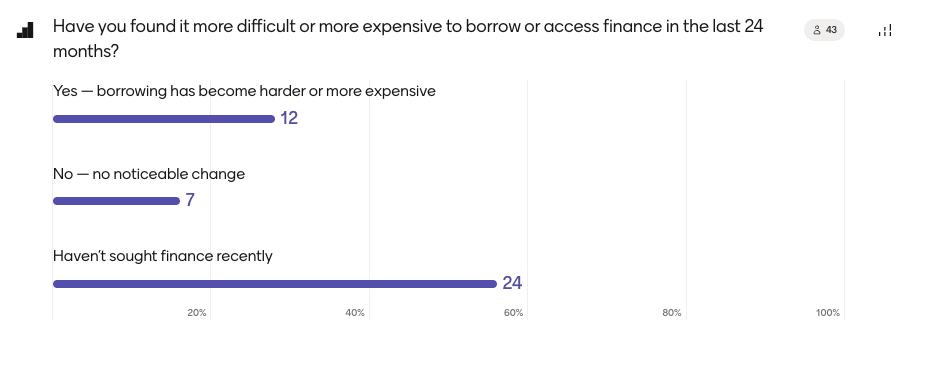
Many operators who expanded aggressively in the 2021–2022 boom are now feeling the weight of those decisions. Oversupply in some areas, softer valuations, and longer deal cycles are forcing a rethink.
Guests are spending - differently
Inflation has driven a 20.8% increase in consumer prices since 2021. That means even if we’re not in a technical recession, it still feels like one to your average family.
Park operators reported shorter bookings, later decision-making, and more price-sensitive guests. For many parks, this means missed sales budgets and more aggressive discounting or second-hand sales.
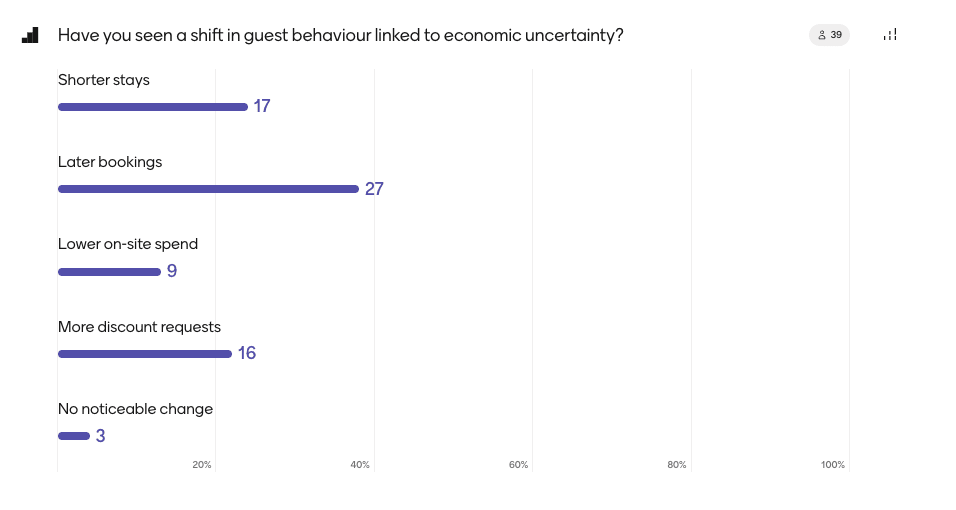
Planning remains painful
Even those ready to invest are being held back by inconsistent planning decisions. We asked: “Have you had a planning application delayed or rejected that you felt was completely reasonable?” Over half the room agreed.
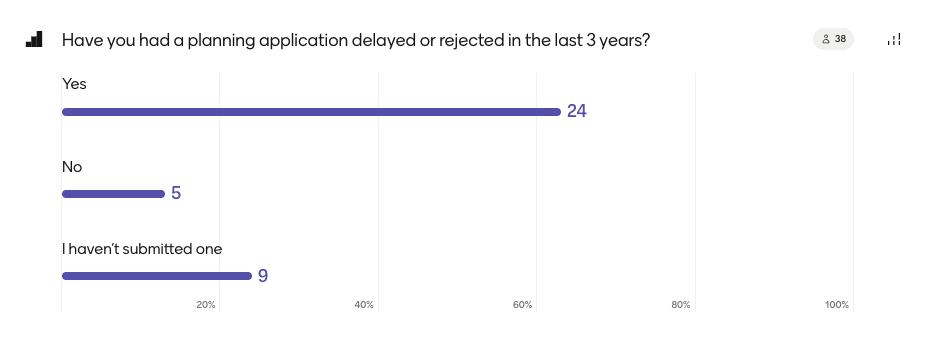
Different LPAs interpret the same rules in wildly different ways. What’s seen as a “non-material change” in Derbyshire is a dealbreaker in Bridgend. Operators are gambling not just on the idea — but on who picks up the file.
The operational strain is very, very real
From staffing to tech expectations to ageing infrastructure — the internal pressures are no less intense:
- Rural labour shortages and rising wages are stretching teams thin
- Guests now expect digital booking, slick comms, fast Wi-Fi, and Instagrammable spaces as standard
- Outdated facilities and poor connectivity are hurting retention
We asked attendees to rank the following actions in what they were most likely to do in 2025, they answered the following:
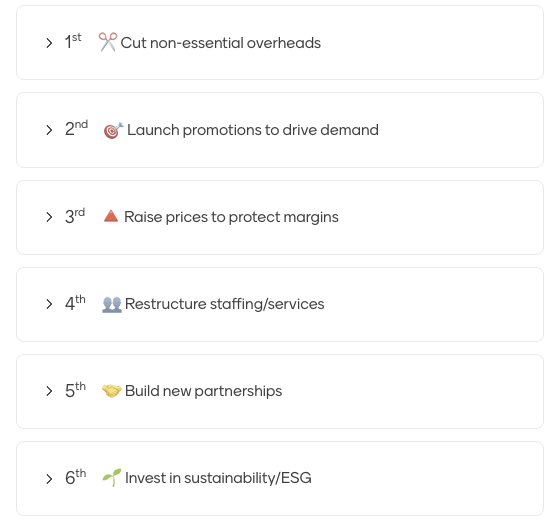
These aren’t panic responses — they’re considered, strategic trade-offs.
From Static to Strategic: Five Shifts That Are Changing the Game
After unpacking the pressure points, we flipped the conversation. If you stop at the pain, you miss the potential and this industry has always been built on resilience. The most forward-thinking operators aren’t just coping; they’re evolving.
Here are four key shifts we’re seeing from those moving the needle.
1. Flexibility Is Your Superpower
Rigid models are out. Flexibility is in, and not just for guests, but for operators too.
Whether it’s blending rental and retail, introducing fractional ownership, or adapting to shorter stays and new ownership types, the most resilient parks are those that know how to pivot.
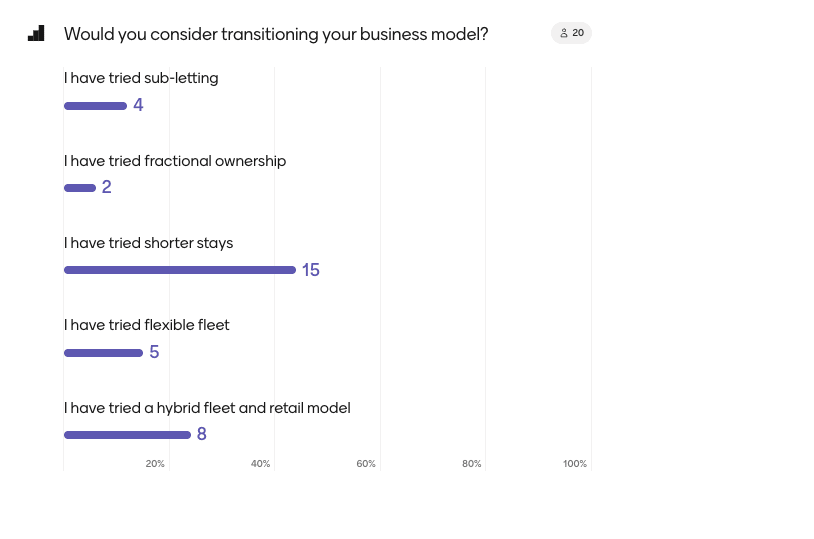
After acquiring Messingham Lakes, Ian merged rental and retail operations and made a bold investment in F&B facilities. The result? A thriving on-park ecosystem where strong footfall from rentals and day visitors is not only boosting occupancy but actively generating qualified leads for retail sales. It’s a model designed to flex with demand and feed itself.
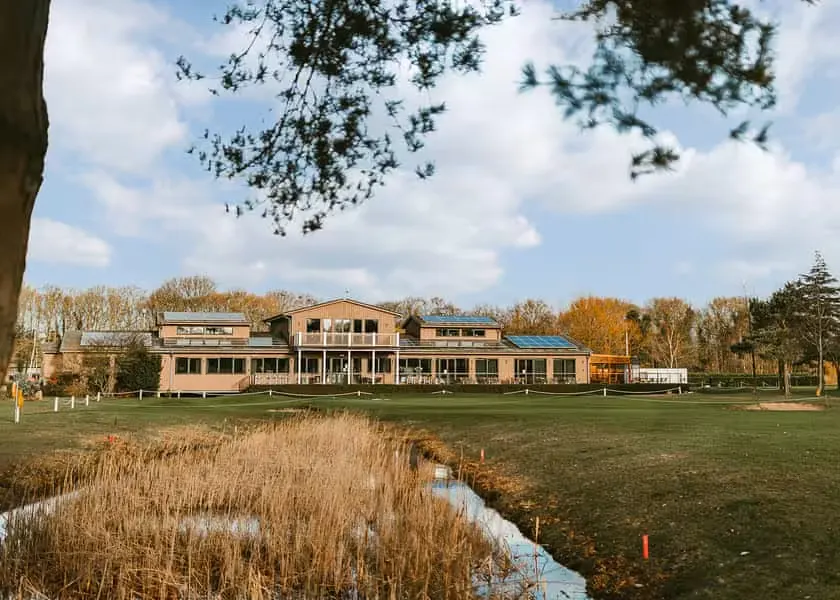
2. Experiences stretch seasons - and models can too
When it comes to what guests remember, and what drives them to return, it's no longer about the size of the bar or how many slot machines you’ve got. The game has changed.
Experiential tourism is reshaping expectations — and more importantly, stretching the season.
Guests are no longer just chasing a week away. They’re chasing meaning.
They want wellness, escapism, local connection, and that elusive “moment”, the one that ends up on Instagram and etched in memory.
And the best part? Many of these experiences don’t require big capital spend. They require intention, creativity, and knowing what your guests actually value.
In the session parks expressed a desire to include; saunas, alpaca walking, ghost walks, wellness weekends and stargazing zones… oh and of course, someone suggested a hot tub!
📍Miles Dewhurst, Yorkshire Spa Retreat
With 40 lodges evenly split between rental, retail and fractional ownership, this park has doubled down on spa-led, year-round appeal. Their wellness-first offering attracts couples and solo travellers outside of summer, and boosts F&B revenue regardless of weather.
We’re also seeing parks think differently about the types of units they’re putting on fleet, especially when aiming to attract high-value guests in off-peak months.
Operators are seeing stronger shoulder-season performance and higher Average Weekly Rates (AWR) than traditional models.
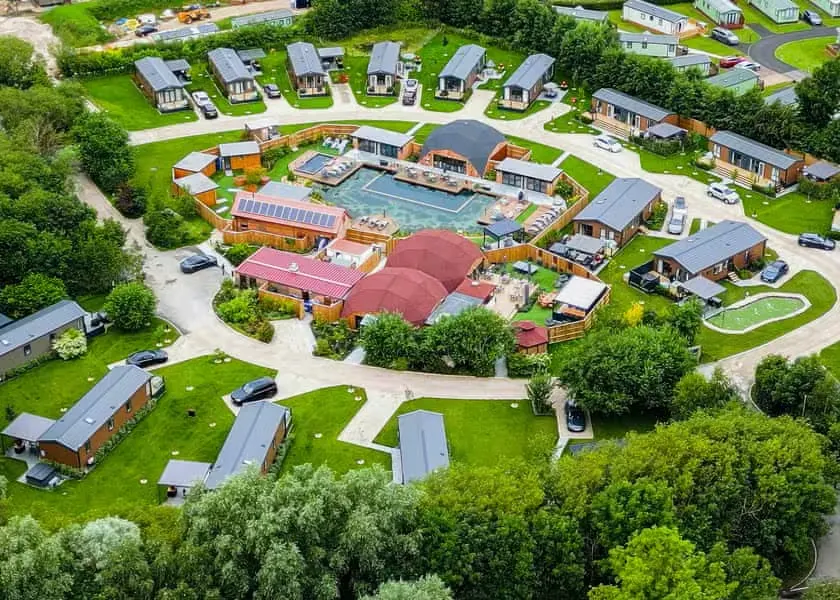
Developed with exactly this trend in mind, the Victory Lumiere is a one-bedroom luxury holiday retreat designed for couples who want more than just a break, they want boutique.
With its free-standing slipper bath, large integrated deck, and wraparound L-shaped sofa, it’s tailor-made for midweek escapes, wellness-led stays, and “Instagram moments.”

3. Sustainability as strategy
Sustainability used to live in the “nice to have” column. A bolt-on. A tick-box. A line at the bottom of a planning proposal.
Not anymore. Today, sustainability sits at the core of the most strategic, and profitable, holiday park operations. It’s not just about ESG reporting. From solar to night-tariffs, the most forward-thinking operators are baking sustainability into their business model not because it looks good, but because it works. For guest appeal. For energy resilience. And for long-term margins.
With energy prices fluctuating and pressure on the grid rising, solar has become a genuine commercial lever. But your business model matters, no park is structured the same way and the solar solution you chose needs to match how you operate:
✔️ Fleet-only parks can clearly benefit from solar ROI, especially if hot tubs and central services are setting a high energy baseline.
✔️ Retail-focused parks must consider who pays for installation and how that value is communicated and recouped.
It’s also important to consider the stage of maturity your park has reached; New developments? Sounds like the perfect opportunity. Fleet upgrades? Much easier than retrofits. Older sites with outdated supply? A great fit for integrated battery and solar models.
📍Nicola Furneaux, Beverley Holidays
In a forward-looking move, Beverley collaborated with Victory Leisure Homes to implement a 10-panel, 4kW solar energy system, paired with a 5.2kW Sunsynk battery for energy storage. This system aims to be net positive in its contribution to energy supply on the park, while developing their eco-tourism credentials.
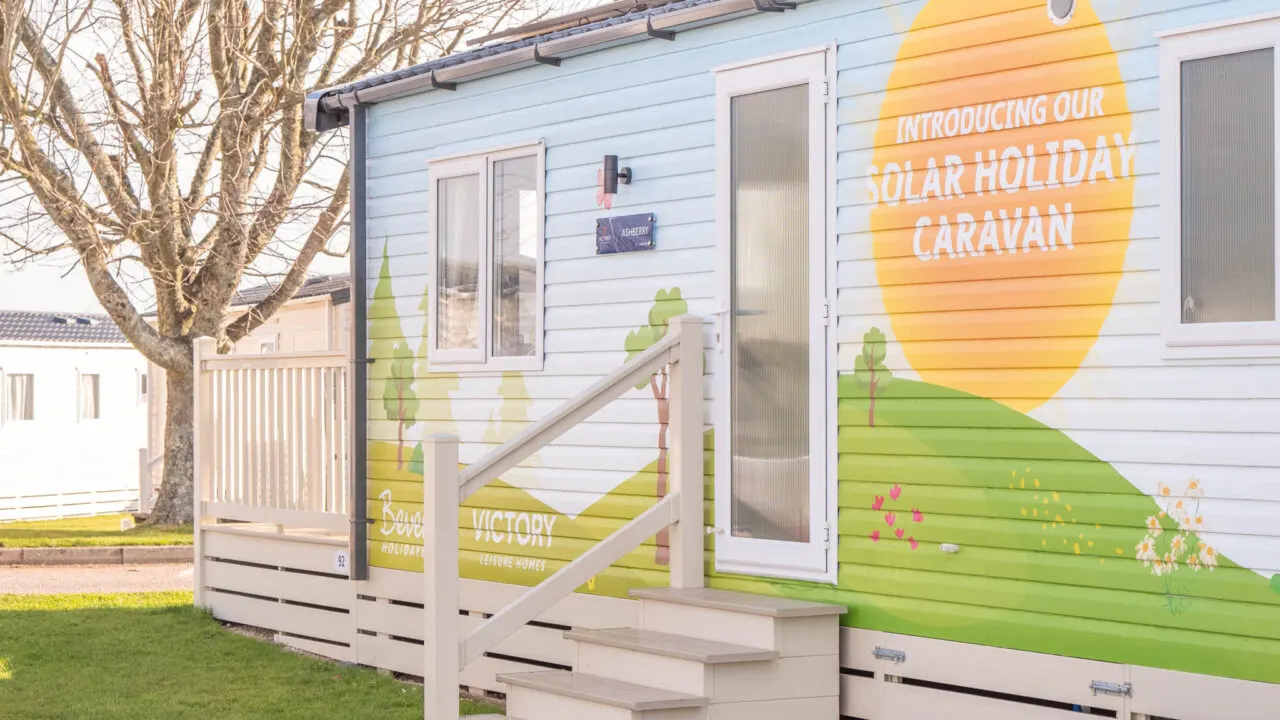
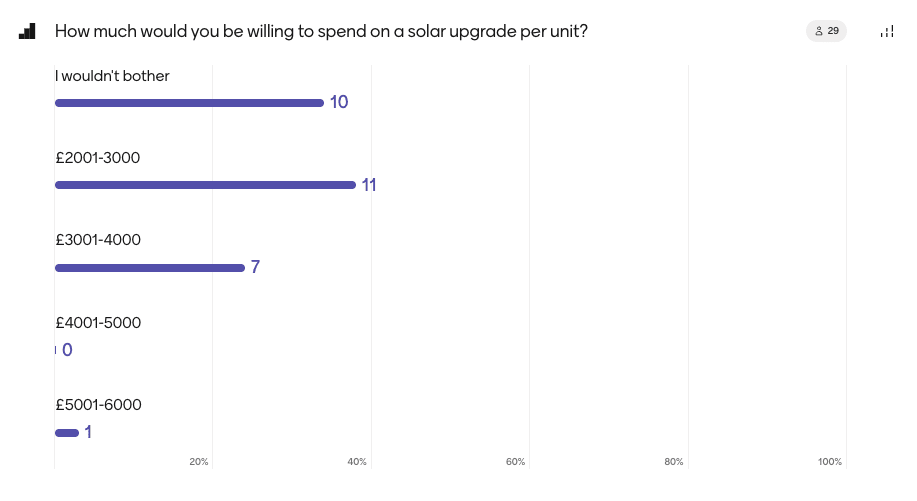
4. Digital Transformation isn't a tech upgrade, it's a smarter way to grow
In my keynote, I made it clear: digitisation isn’t just about tech, it’s a strategy for smarter growth.
Holiday parks today can be complex businesses. Between rental and retail, F&B, maintenance, guest comms, and finance it can easy to fall behind. And when you do, it shows up in guest experience, conversion rates, and costs.
Operators who’ve embraced digital platforms are already seeing the benefits:
- Less admin and human error
- Better guest journeys and automation
- Real-time data that informs smarter decisions
This is about trading whiteboards for dashboards and letting your systems do the heavy lifting, so your team can focus on guests. For further thoughts on digital transformation, please view sections 2 & 3 of my previous blog.

📍 Tool to Watch: Elite Dynamics
As I shared during the event, I’m a strong advocate for Elite Dynamics, not just because it’s purpose-built for holiday parks, but because it rides Microsoft’s ongoing innovation curve. It’s already integrating tools like CoPilot AI, offering predictive insights and operational intelligence most parks haven’t had access to before.
5. Strategic partnerships: who you build with matters
We’ve talked a lot about adapting, about evolving your offer, your infrastructure, your mindset. But here’s the truth I shared at the close of my keynote: you don’t have to do it alone.
In today’s landscape, success in the holiday park sector often comes down to who you work with, not just what you build. The most resilient operators are forming partnerships across:
- Supply and manufacturing
- Finance and ownership models
- Technology and data
- Marketing and guest experience
- Local communities and third-party providers
Through the Rix Group, we’re backing that belief with real-world support. We’re now offering:
- Pitch development finance
- Hire-purchase agreements for accommodation stock
- Rates as low as 3% + BOE base for qualifying projects (50–75 units)
This is finance that’s tailored for our sector not off-the-shelf but designed to unlock growth without compromising cash flow.
📅 Let's explore partnership options
Moving forward
One year ago, I wrote about scarcity. About fighting over demand. And about the very real risk of some businesses not making it through.
Today, I’m writing about something different: momentum.
What I saw in York and what I’m hearing across the parks I visit is that we’re not just surviving anymore. We’re adapting. Innovating. Getting clearer about what matters, and more strategic about how we deliver it.
This isn’t about being the biggest or flashiest. It’s about being the most intentional.
If you’re willing to flex, rethink, and partner smartly, there’s real opportunity ahead.
And if that’s something you want to explore, whether it’s through a new model, new tech, or a new way of financing growth, you know where to find the Victory, Prestige and Rix team.
📅 Let's explore partnership options
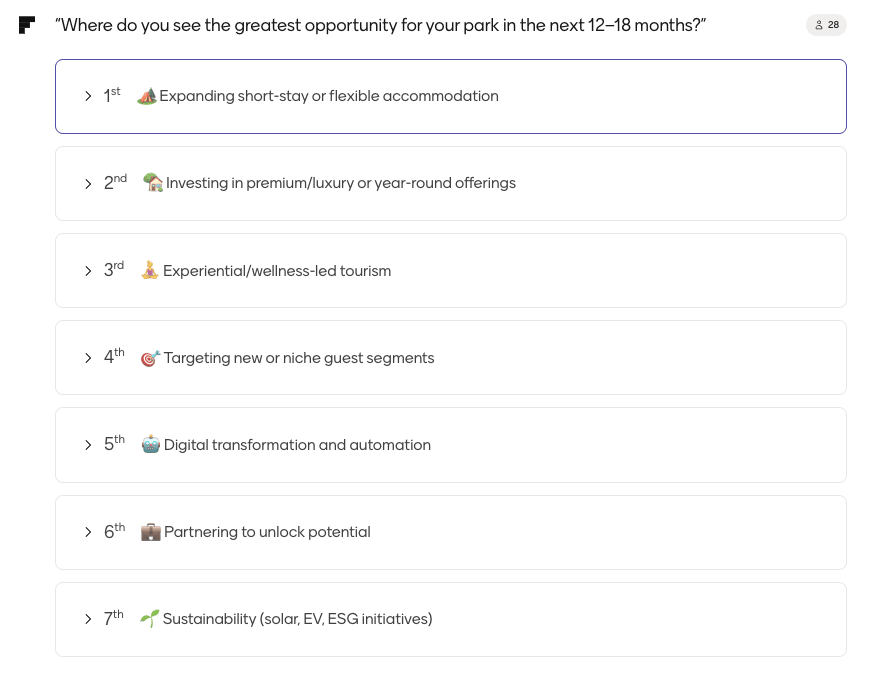
You might also enjoy reading...

What makes a best-selling holiday home?
Discover the story of the Lakewood: the holiday home that broke the mould. And get a sneak peek at what’s coming next…

Rix Group acquires Prestige
Hull family business J.R. Rix & Sons Ltd has acquired a leading residential park home maker to build on its holiday home and lodge portfolio manufactured by Victory Leisure Homes.

The Evolution of the staycation
Evolution by Victory is Victory Leisure Homes’ world first solution to the sustainable staycation. With the staycation boom showing no signs of letting up, the holiday home and lodge industry continues to thrive. But true sustainability is only just being truly considered – thanks to Victory.
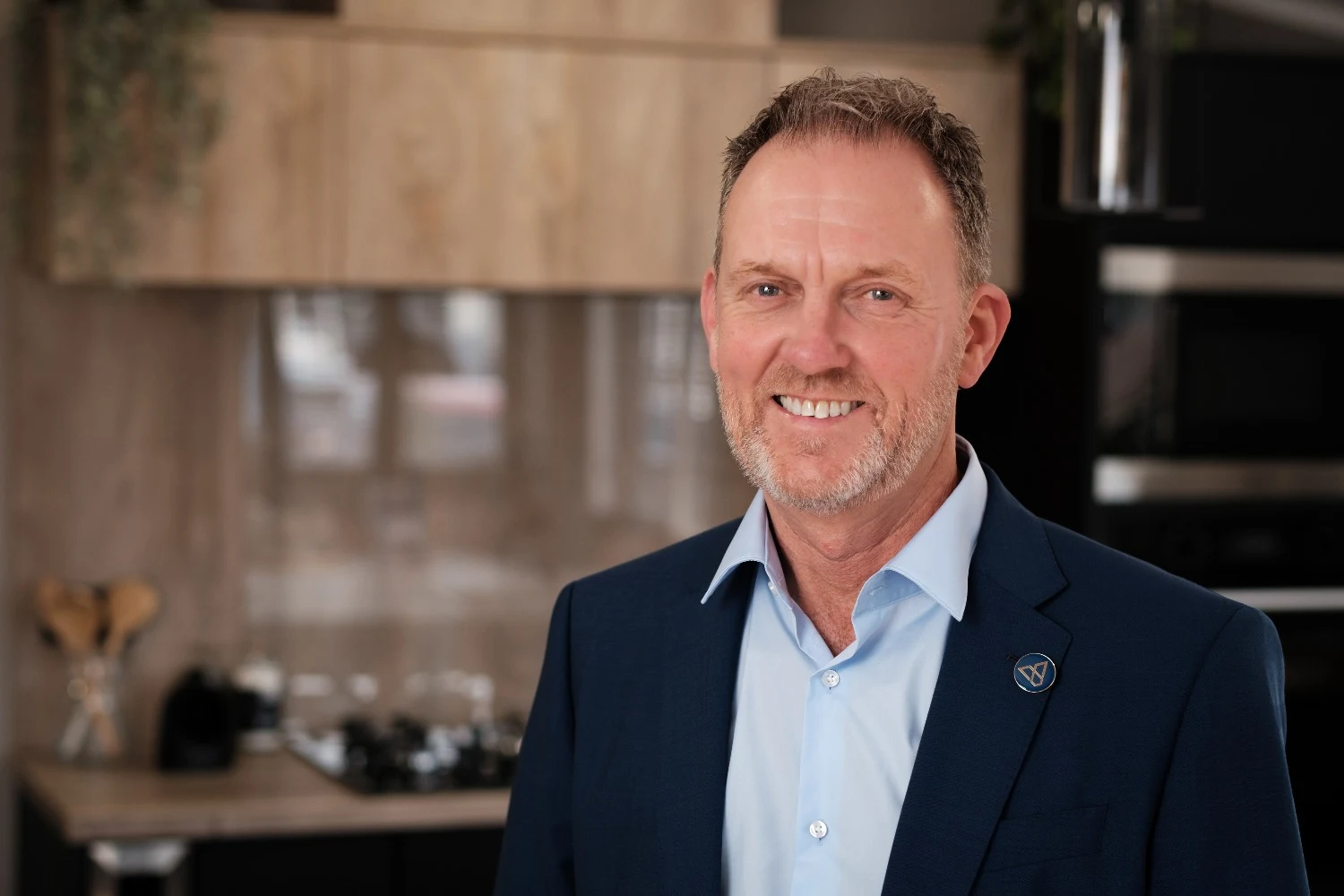
Steve Toas joins our senior leadership team
Steve’s new role will focus on ensuring that Victory’s quality is unparalleled, while forming strong relationships with customers across the UK in order to build a programme of continuous improvement.
